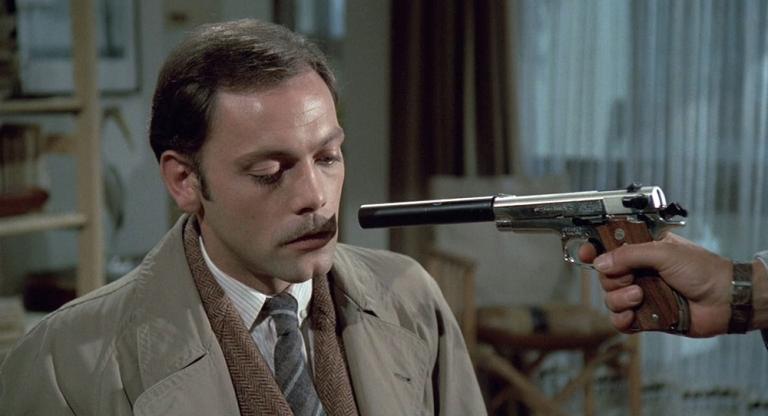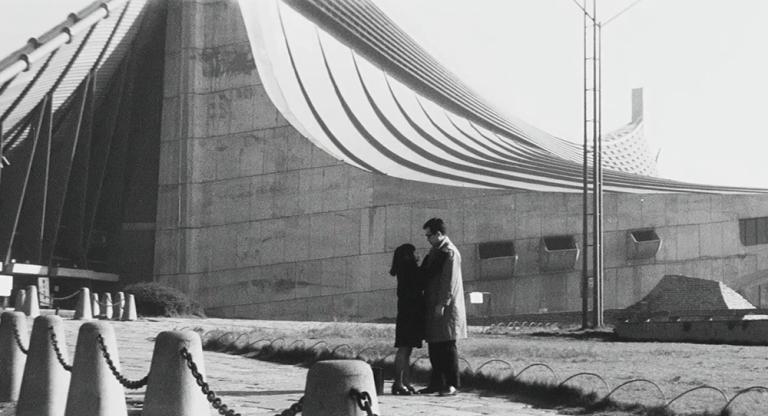In his 1999 monograph Times Square Red, Times Square Blue, Samuel R. Delany describes the cross-class sexual and social contact that made Times Square central to his and other gay men’s lives. The civic and commercial redevelopment projects targeting the neighborhood meant, he argues, “major demolition, destruction, and devastation in what had established itself not only in the American psyche, but in the international imagination, as one of the world's most famous urban areas.”
The early days of this clean-up campaign, which ultimately turned an accessible social hub of erotic—particularly queer—life into a lifeless miasma of garish, family-friendly advertising, form the backdrop of Allan Moyle’s film Times Square (1980). Thirteen-year-old Pamela’s (Trini Alvarado) father is the city commissioner in charge of a campaign to “reclaim, rebuild, and restore” Times Square. Pamela, an aspiring poet, is alienated by his bourgeois moralism and writes letters signed “Zombie Girl” to DJ Johnny LaGuardia (Tim Curry), who broadcasts out of a Times Square radio station. When she meets Nicky (Robin Johnson), a tough teenaged street punk, in the neurological hospital where they’re both being treated for psychosomatic seizures, she is entranced. “Everything you do,” Pamela tells her new friend, “is poetry.”
Nicky helps her break out of the ward, and they escape to a squatted warehouse on the Chelsea piers. While Pamela’s father mobilizes local media to apprehend his daughter’s so-called kidnapper, the pair start writing songs and christen themselves the Sleez Sisters. Championed by Johnny, they’re soon catapulted to local infamy, and legions of disaffected bridge-and-tunnel tweens become their devoted fans.
Like so many same-gender friendships in coming-of-age stories, Pamela and Nicky’s affectionate relationship reads plainly as a romance. The film’s original cut was, according to Moyle, considerably more explicit in its depiction of the Sleez Sisters as a lesbian couple. Despite the producers’ evidently homophobic pressure, Times Square is impossible not to read as a deeply queer text. Pamela and Nicky’s love for one another is entwined with their rejection of doctors, cops, and politicians. After a plainclothes officer busts them for running a game of Three-card Monte on a street corner, the girls evade capture by sprinting away through a porno theater whose patrons cheer them on. Not content to be the innocent pawn in her dad’s save-the-children rhetoric, Pamela turns instead to solidarity, freedom, and rock ’n’ roll.
Times Square screens tonight, January 18, at Nitehawk Prospect Park.



